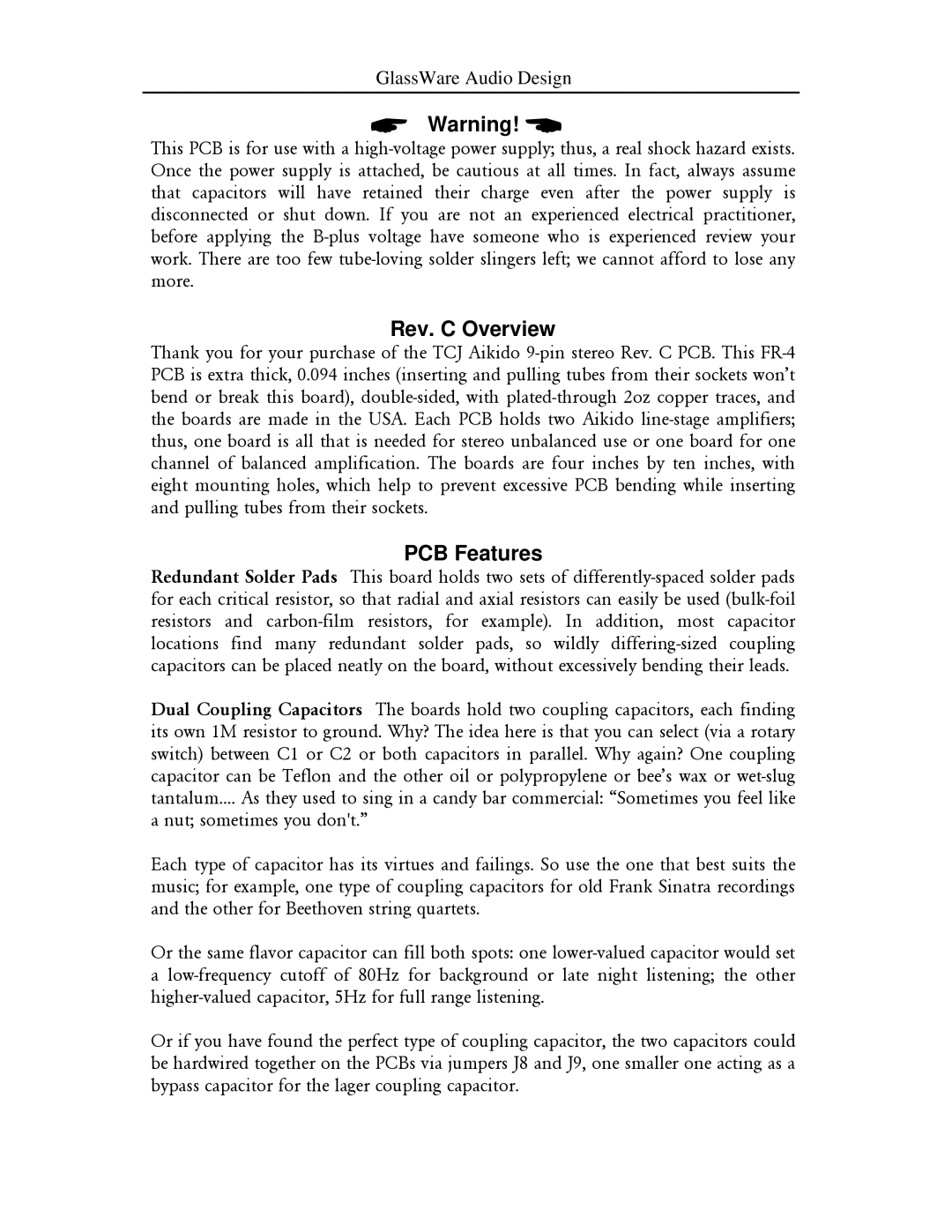GlassWare Audio Design
A Warning! @
This PCB is for use with a high-voltage power supply; thus, a real shock hazard exists. Once the power supply is attached, be cautious at all times. In fact, always assume that capacitors will have retained their charge even after the power supply is disconnected or shut down. If you are not an experienced electrical practitioner, before applying the B-plus voltage have someone who is experienced review your work. There are too few tube-loving solder slingers left; we cannot afford to lose any more.
Rev. C Overview
Thank you for your purchase of the TCJ Aikido 9-pin stereo Rev. C PCB. This FR-4 PCB is extra thick, 0.094 inches (inserting and pulling tubes from their sockets won’t bend or break this board), double-sided, with plated-through 2oz copper traces, and the boards are made in the USA. Each PCB holds two Aikido line-stage amplifiers; thus, one board is all that is needed for stereo unbalanced use or one board for one channel of balanced amplification. The boards are four inches by ten inches, with eight mounting holes, which help to prevent excessive PCB bending while inserting and pulling tubes from their sockets.
PCB Features
Redundant Solder Pads This board holds two sets of differently-spaced solder pads for each critical resistor, so that radial and axial resistors can easily be used (bulk-foil resistors and carbon-film resistors, for example). In addition, most capacitor locations find many redundant solder pads, so wildly differing-sized coupling capacitors can be placed neatly on the board, without excessively bending their leads.
Dual Coupling Capacitors The boards hold two coupling capacitors, each finding its own 1M resistor to ground. Why? The idea here is that you can select (via a rotary switch) between C1 or C2 or both capacitors in parallel. Why again? One coupling capacitor can be Teflon and the other oil or polypropylene or bee’s wax or wet-slug tantalum…. As they used to sing in a candy bar commercial: “Sometimes you feel like
a nut; sometimes you don't.”
Each type of capacitor has its virtues and failings. So use the one that best suits the music; for example, one type of coupling capacitors for old Frank Sinatra recordings and the other for Beethoven string quartets.
Or the same flavor capacitor can fill both spots: one lower-valued capacitor would set a low-frequency cutoff of 80Hz for background or late night listening; the other higher-valued capacitor, 5Hz for full range listening.
Or if you have found the perfect type of coupling capacitor, the two capacitors could be hardwired together on the PCBs via jumpers J8 and J9, one smaller one acting as a bypass capacitor for the lager coupling capacitor.
